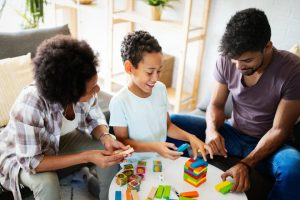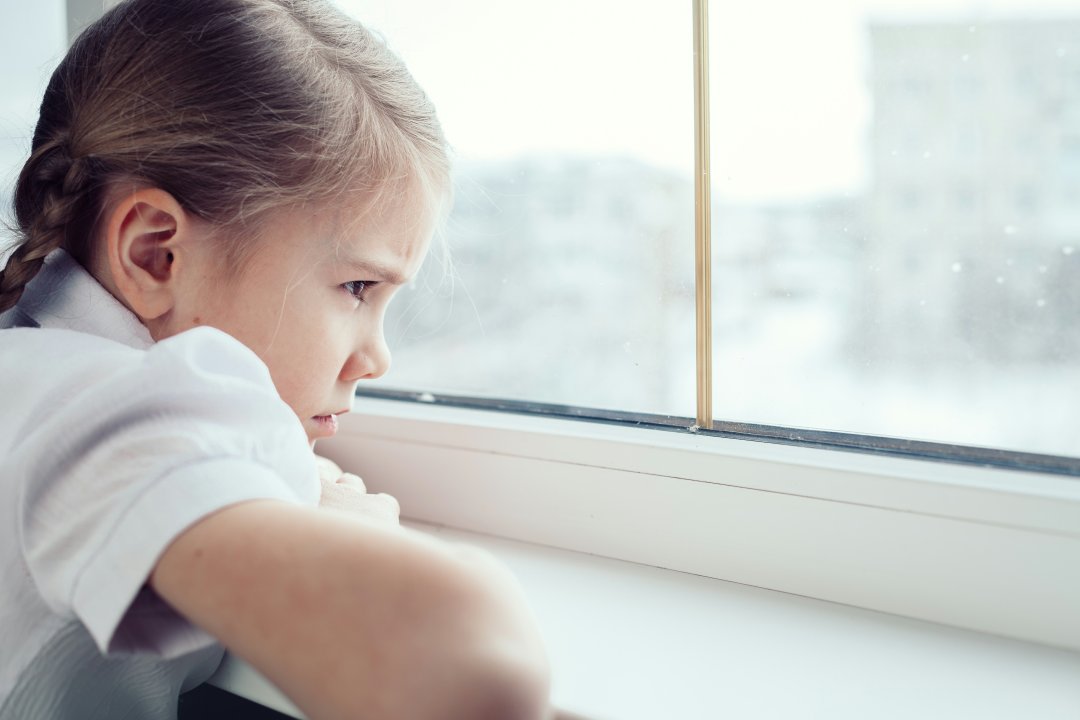When schools closed during the pandemic, I am not going to pretend it did create an avalanche of negative thoughts with a 5 and 3-year-old at home, all day every day for the foreseeable future. Entertaining, the endless snacks and the schoolwork. In addition to this, we are both working from home and splitting the childcare between us while trying to complete a reasonable amount of work. The temptation to sit the children in front of the tv is only considered at the weekend (and in short bursts and to keep a distinction). I’m reasonably pragmatic and moved swiftly to create schedules and organise activities.
The first time I really appreciated the impact on the children was when my 3-year-old daughter told me she missed her ‘bestie’ from nursery. Research shows that children as young as 2 are aware of the changes. I thought I would share some tips on how to support your children based on current research.
 It is important to have age appropriate discussions about the pandemic. Failure to do so, means children may try to make sense of the world in their own way. If they hear something that does not fit the narrative they have created, it can easily lead to fear and anxiety. Therefore, it is important to be mindful of your conversations when they could potentially overhear.
It is important to have age appropriate discussions about the pandemic. Failure to do so, means children may try to make sense of the world in their own way. If they hear something that does not fit the narrative they have created, it can easily lead to fear and anxiety. Therefore, it is important to be mindful of your conversations when they could potentially overhear.
Children take behavioural and emotional cues from adults. If adults are anxious as a result of the pandemic, this anxiety can inadvertently result in children’s avoidance of sharing their own concerns attempting to protect others, leaving children to cope with these difficult feelings alone. Therefore, it is important not only for adults to look after their wellbeing, but also when carers are calm they are able to provide better support for those in their care.
Keep an eye out that may indicate anxiety – poor sleep, irritability, clinginess, distressed, bed wetting etc. At this time, your child may require extra love and attention as they attempt to make sense of this temporary world.
Many adolescents are resistant to remaining at home at the best of times, so this could be especially challenging for them. Whilst their bedroom maybe their haven, a recent research has shown since the pandemic commented online grooming has increased by as much as 28%. This time is no different to any, discussions about staying safe online and implementing safety measures are important. Have conversations about how they’re doing, what they miss about school, what they miss about having contact with their friends, and then just listening and giving them an opportunity to talk about their feelings.
 Routine – I cannot emphasis this enough even for adults. Our brain does not like change. It thrives when there are automated actions, because it requires less thinking, freeing the mind to focus on other things and is reassuring. Try to stick to a similar framework such as reading time, bedtime, waking up, bath, breaks and mealtimes.
Routine – I cannot emphasis this enough even for adults. Our brain does not like change. It thrives when there are automated actions, because it requires less thinking, freeing the mind to focus on other things and is reassuring. Try to stick to a similar framework such as reading time, bedtime, waking up, bath, breaks and mealtimes.
Your children have lost their peers – people who share their unrivalled imaginations, their world and their social network. If you are fortunate, they may also be missing their extended families. You are their carers and playmates during this time, so unleash the child within and let loose, it is a great opportunity to create more positive memories that you can happily recall when this is all over.




